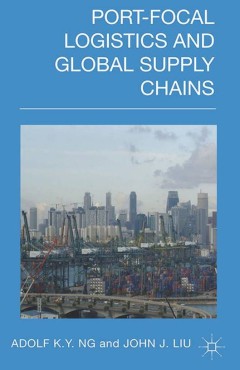Ditapis dengan

Reader : Maritime Policies & Governmental Politics
- Edisi
- Maritime Policies & Governmental Politics
- ISBN/ISSN
- -
- Deskripsi Fisik
- illus,; 30 cm
- Judul Seri
- Maritime Policies & Governmental Politics
- No. Panggil
- CC STC REA m C1
- Edisi
- Maritime Policies & Governmental Politics
- ISBN/ISSN
- -
- Deskripsi Fisik
- illus,; 30 cm
- Judul Seri
- Maritime Policies & Governmental Politics
- No. Panggil
- CC STC REA m C1

Syllabus : Maritime Policies & Governmental Politics Part II
- Edisi
- Maritime Policies & Governmental Politics
- ISBN/ISSN
- -
- Deskripsi Fisik
- illus,; 30 cm
- Judul Seri
- Maritime Policies & Governmental Politics
- No. Panggil
- CC STC SYL m C1
- Edisi
- Maritime Policies & Governmental Politics
- ISBN/ISSN
- -
- Deskripsi Fisik
- illus,; 30 cm
- Judul Seri
- Maritime Policies & Governmental Politics
- No. Panggil
- CC STC SYL m C1

Presentations : Maritime Policies & Governmental Politics
- Edisi
- Maritime Policies & Governmental Politics
- ISBN/ISSN
- -
- Deskripsi Fisik
- illus,; 30 cm
- Judul Seri
- Maritime Policies & Governmental Politics
- No. Panggil
- CC STC PRE s P1
- Edisi
- Maritime Policies & Governmental Politics
- ISBN/ISSN
- -
- Deskripsi Fisik
- illus,; 30 cm
- Judul Seri
- Maritime Policies & Governmental Politics
- No. Panggil
- CC STC PRE s P1

Reader : Corporate Maritime Management and Strategies
- Edisi
- Corporate Maritime Management and Strategies
- ISBN/ISSN
- -
- Deskripsi Fisik
- illus,; 30 cm
- Judul Seri
- Corporate Maritime Management and Strategies
- No. Panggil
- CC STC REA c C1
- Edisi
- Corporate Maritime Management and Strategies
- ISBN/ISSN
- -
- Deskripsi Fisik
- illus,; 30 cm
- Judul Seri
- Corporate Maritime Management and Strategies
- No. Panggil
- CC STC REA c C1

Evaluating straddle carrier deployment policies: a simulation study for the P…
Most container terminals in the world today are operating up to their capacities. In this paper, we have developed a decision support system to optimise yard operations by considering all container flows (import, export and transshipment) through the yard with the view to improving terminal performance and efficiency. In another paper, we proposed an optimization model that determines optimal c…
- Edisi
- VOL. 36, NO. 4, 353–366
- ISBN/ISSN
- 1464–5254
- Deskripsi Fisik
- 14 p.
- Judul Seri
- Evaluating straddle carrier deployment policies
- No. Panggil
- ATC LO HAD e

Maritime Governance and Policy-Making : The Need for Process Rather than Form
The evidence for systemic failure in the governance of the maritime sector is clear from the widespread inability of many shipping policies to address the problems of environmental, security, safety and economic concerns central to the sector. The causes of this failure in governance and policy-making stem to a large extent from the inexorable spread of globalisation which has accelerated …
- Edisi
- Vol. 29, No. 2
- ISBN/ISSN
- -
- Deskripsi Fisik
- 20 p
- Judul Seri
- -
- No. Panggil
- ATC MR ROE m

Port-Focal Logistics and Global Supply Chains
This book explores the intersection of two trends in the port sector that have occupied researchers in recent years: the port's progressively interventionist role in the hinterland and its increasing importance as a node within supply chains. These trends are set against the backdrop of fierce port competition as the increasing size of modern container vessels drives ports to make huge investm…
- Edisi
- -
- ISBN/ISSN
- 978-1-349-44539-4
- Deskripsi Fisik
- -
- Judul Seri
- -
- No. Panggil
- TXT PO ADO p

Logistics in command and mixed economies: the Russian experience
Presents a history of logistical planning in the USSR and Russia from 1920‐1992. Describes in detail the functions of the centralized distribution system created in the course of Brezhnev‐Kosygin reforms (1965) and dismantled in 1991; a chronology of changes in distribution of producer goods in 1991‐1992 and explains why the newest are less effective than the dismantled distribution syste…
- Edisi
- Vol. 24 Iss 2 pp. 4 - 14
- ISBN/ISSN
- -
- Deskripsi Fisik
- 13 p.
- Judul Seri
- International Journal of Physical Distribution & Logistics Management
- No. Panggil
- ATC LO ROD l

Multiproduct slot allocation heuristic to minimize storage space
Since developing efficient product-location strategies represents a critical issue in operations management, due to its impact on warehouses performance in terms of both service level and operation costs, this paper aims to focus on possible improvements in the allocation of SKUs, numerically evaluating how these can lead to a reduction of both overall required warehouse space and material hand…
- Edisi
- Vol. 42 No. 3, 2014 pp. 172-186
- ISBN/ISSN
- -
- Deskripsi Fisik
- 16 p .
- Judul Seri
- International Journal of Retail & Distribution Management
- No. Panggil
- ATC LO BAT m
 Karya Umum
Karya Umum  Filsafat
Filsafat  Agama
Agama  Ilmu-ilmu Sosial
Ilmu-ilmu Sosial  Bahasa
Bahasa  Ilmu-ilmu Murni
Ilmu-ilmu Murni  Ilmu-ilmu Terapan
Ilmu-ilmu Terapan  Kesenian, Hiburan, dan Olahraga
Kesenian, Hiburan, dan Olahraga  Kesusastraan
Kesusastraan  Geografi dan Sejarah
Geografi dan Sejarah